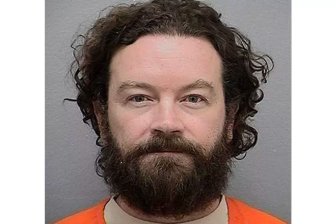Petter Blindheim joined the Royal Norwegian Navy just after his 18th birthday in 1941 and proudly served during the Second World War.

Despite being a decorated war hero, Blindheim isn’t allowed to move into Camp Hill, a veteran’s care facility in Halifax. The 94-year-old man’s family says they have been getting the run around from the federal government for more than a year.
“He is upset. He does not understand the process,” Karen Higgins, Blindheim’s daughter says of her father.
Peter Stoffer, the former critic for veterans affairs, who served as the NDP MP for Sackville-Eastern Shore for 18 years before his defeat in 2015, is now joining the fight to help Blindheim.
He is calling on Kent Hehr, Canada’s Minister of Veteran’s Affairs, to help the elderly man. Stoffer says there is “absolutely no reason” why Blindheim is being denied access to the facility, especially when there are currently 13 empty beds at the hospital.
“He’s 94. He’s a war veteran. He’s all that needs to be said. End of story. In the hospital he goes and allow him to live the rest of his life in dignity. That’s it,” said Stoffer. “It’s not that difficult to figure out.”
Blendheim’s family says they were first told that the senior was not considered an Allied veteran, which is why he was not allowed to move into Camp Hill. The government then reversed that decision and said they would recognize Blindheim as an Allied veteran. Despite that, the feds are still not allowing him into the facility.

Get weekly health news
Now, the family says they need to prove that frail senior has specialized requirements that can not be met at a community bed or nursing home.
“(It’s) very difficult for me, very difficult for my family,” Peter Blendheim, Blindheim’s son says of the toll the last year has taken on them. “We want answers from the director of veterans affair.”
The family says Blindheim is disabled and suffers from a war-inflicted mental injury that he is receiving a disability pension for in Norway.
“It’s horrifying you know, it’s absolutely horrifying, not to mention his chronic health conditions as a 94-year-old, in the last year, he has had two admissions to the QE2,” said Higgins.
According to Stoffer, veteran care facilities were transferred from the federal government in the 1970’s and 80’s. They are now all owned and operated by individual provinces across the country.
In this case, if Blindheim is accepted into Camp Hill, Stoffer says his family will be required to pay between $800 to $900 a month. The rest of the cost for the facility would then be covered by the federal government.
If Blindheim goes on a waiting list for a community bed, the province will be responsible to cover the cost. His family says the waiting list for a community bed means the senior would have to stay in his own home, being cared for by his 78-year-old wife and children, for another year or two and that’s simply too long.
Nova Scotia Premier Stephen McNeil says he believes all veterans deserve to be treated with the respect they deserve.
“If he requires a placement at Camp Hill, we as a national government should support that,” McNeil told Global News. “There’s a right thing to do here and the right thing is to provide this gentleman, if he requires support in a long term care facility as a veteran, that we should be providing it.”
Stoffer says the whole thing comes down to money and he doesn’t feel like veterans should have to jump over hurdles to get the care they deserve.
“There’s two policies the government has through DVA that they’ll never admit to. They will swear on a stack of bibles that I’m a raving lunatic. It’s the no-go policy. If they say no long enough, the family may go away. Or even worse, the 3D policy. It’s you delay, you deny, the person dies. Well, that’s unfortunate,” said Stoffer.
Blindheim recently completed a mental and physical assessment required by the department of veterans affairs as part of their application to move into Camp Hill. A decision on whether of not He now meets the specialized requirements to move into the facility is expected to be made sometime Thursday.
The family expects they will receive a letter by mail next week but have already been told they will likely again be denied. If that’s the case, the next step would be to appeal the decision, which would take months or take the federal government to court.








Comments